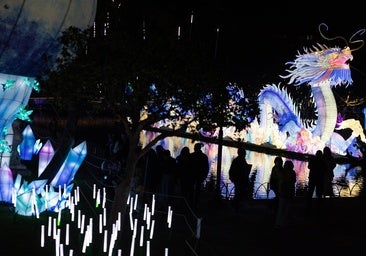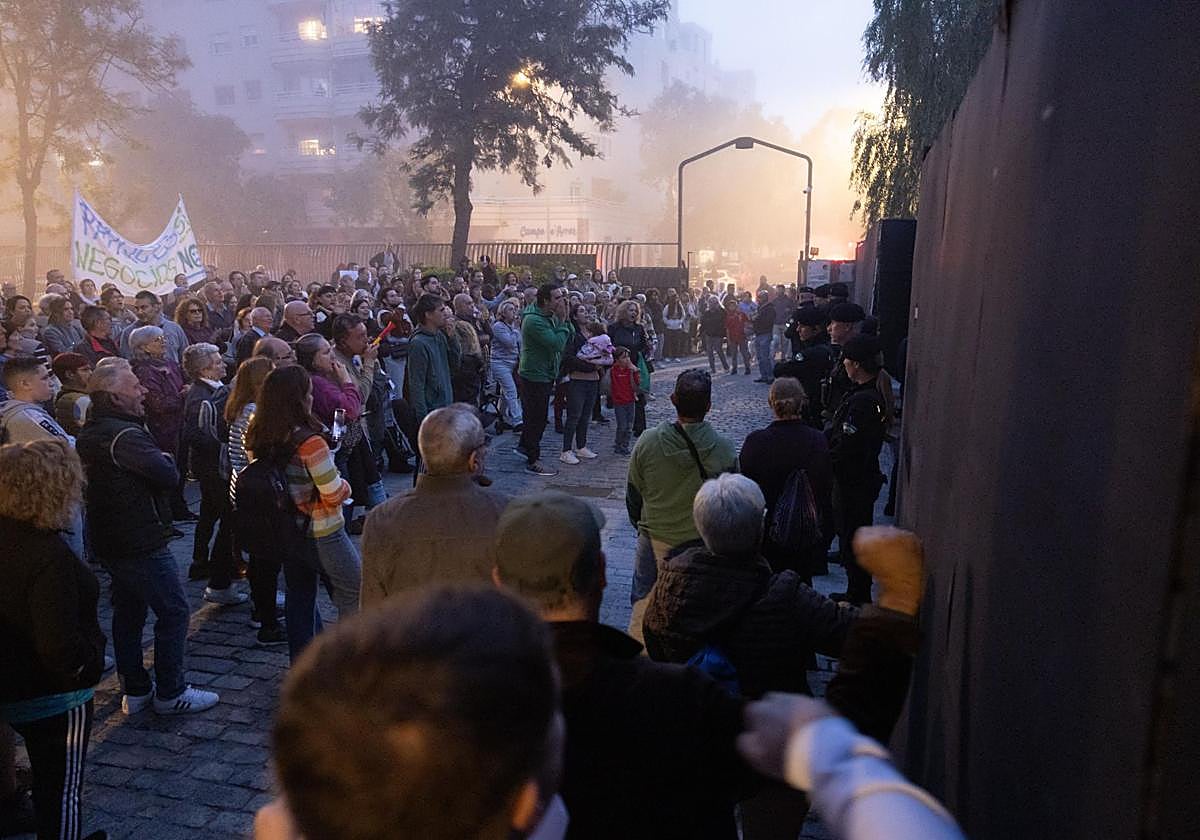Malaga residents protest against Chinese light and lantern show on first night: 'Open up our park!'
Some 200 people gathered at the site of the spectacular in the city to demand the suspension of the event, which is scheduled to run until 15 February
Some 200 residents gathered outside the lantern festival at Malaga's Parque del Oeste on the opening night to protest against the private event being held in a public space. The festival will run until 15 February, whereby during this time, the land occupied by the company operating the festival cannot be used for any other reason than to visit the festival, which costs between 15 and 20 euros.
This is the reason behind a series of protests by local residents who called out the town hall for ceding a public space for the operation of a private business. Protesters cried out, "open up our park", as visitors attended the festival's opening night on Saturday 30 November, including Malaga mayor Francisco de la Torre and councillor Teresa Porras.
The atmosphere was tense at times as protestors banged on screens erected to block the view into the park. Almost in unison, slogans were chanted against what the residents considered a misappropriation of public space. "Paco, the park is not yours" and "park yes, business no", the demonstrators yelled out.
Among those attending the protest were elderly people, young people and entire families. Some were local residents and others came from other neighbourhoods. One of them, Juan Miguel López, 74, came from Cruz de Humilladero. "This is not about where you live. It's about protesting against the act of taking away a public asset of Malaga society so that a few people can do business," he told SUR.
"It's not just that they are closing the park until February. It's that an agreement has been signed for the next five years. Are we, the residents, really going to have to settle for this, without being able to use a place that we use on a daily basis for five years," local resident Ángela González pointed out.


